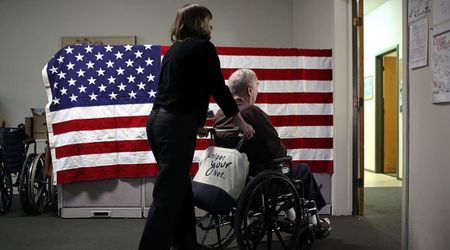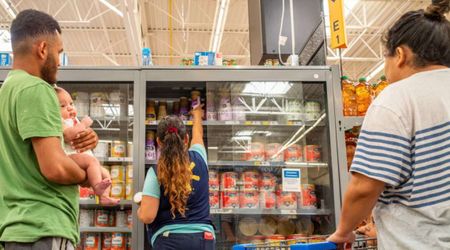TikTok Video Sheds Light on Challenges of Rising Living Costs

In a poignant revelation on social media, TikToker Ora Hardesty recently opened up about her financial struggles in the face of rising living costs. The video, which has garnered attention for its relatability, sheds light on the challenges many individuals are facing in the current economic crisis.

Hardesty, visibly distressed, shared her story on TikTok, expressing bewilderment over her inability to cover rent despite making significant sacrifices. The video underscores the broader impact of the economic downturn, where soaring prices for essential items have exacerbated financial hardships for individuals across various income brackets.
The crux of Hardesty's predicament lies in a substantial increase in her monthly rent, jumping from $1,300 to $1,800. The emotional video captures her desperation, emphasizing the profound impact such economic pressures can have on an individual's well-being.

"I am not a rich person. I don’t have a lot of stuff," Hardesty revealed, dispelling any notions of extravagant living. "I have basic household necessities... I don’t have a lot of lavish things."
Despite her previous efforts to trim expenses and budget carefully, the sudden spike in rent has rendered those measures insufficient. Like many Americans, Hardesty articulates the challenges of feeling overworked and underpaid, stressing that the struggle is rooted in a lifetime of financial adversity.

"You don’t catch a break when you grow up poor," she shared, emphasizing the enduring impact of socioeconomic background on an individual's financial trajectory.
Hardesty's dream, she disclosed, is a modest one – to live peacefully with her cats. In a plea to the TikTok community, she implored viewers to help make her video viral, with the hope of generating additional income to meet her financial obligations. User MC2 expresses a sense of skepticism or concern, noting that "something seems off." Ora Hardesty, in response, discloses personal information about herself, sharing that she has been told she has "autistic tendencies" and struggles with expressing emotions and processing feelings. Additionally, she reveals that she has PTSD, providing a potential explanation for any perceived irregularities in her expression or behavior.

However, instead of garnering widespread sympathy, Hardesty faced criticism from viewers who questioned her circumstances. Some skeptics even went so far as to doubt her employment status, prompting Hardesty to display her work uniform as evidence. Proctor reacted to the situation with a sarcastic tone, suggesting a change in financial support with the comment, "When daddy stops giving you that 5k allowance a month." This comment appears to mock the notion of a monthly allowance from a parent.
ArthurDelaRoe's response was direct and practical, posing a question about the individual's employment status and recommending finding work as a solution, accompanied by an angelic emoji: "Why don't you work or something?
Meanwhile, steelbullxl adopted a critical stance, questioning the authenticity of the financial struggle. They highlighted perceived contradictions in the individual's appearance and living space, suggesting a disconnect between the presented financial hardship and visible signs of luxury: "Oh, yeah. You look poor. The room you are in looks bigger than my rental. Your hair, nails, and makeup look like you spent more than my car payment."
@oranotrita I know I’m not the only dealing with this rn. Like how are we suppose to do this? I don’t understand. 😔 #lifestyleblogger #growthmindset #mindsetmotivation #lifeupdate ♬ original sound - Ora Hardesty
Despite the prevalent economic challenges, the response to Hardesty's situation underscores a lack of understanding and empathy. Rather than offering support, critics questioned her choices and suggested alternatives, such as finding a man to provide financial support. Hardesty, however, remained steadfast in her belief in equal partnerships and self-reliance.
Even her commitment to self-care faced scrutiny, highlighting the societal tendency to stigmatize personal well-being practices in the face of financial struggles. The discourse surrounding her circumstances points to a concerning trend where individuals are quick to assign blame rather than empathize with the shared struggles of the current economic climate. Hardesty's plight is not isolated, as data reveals that nearly half of U.S. tenants are grappling with rent payments despite a reported decline in rental rates over the past eight months. The discrepancy between economic data and live experiences highlights the nuanced nature of financial challenges and the importance of addressing them on an individual basis.
For more such content do follow Ora Hardesty | @oranotrita





















